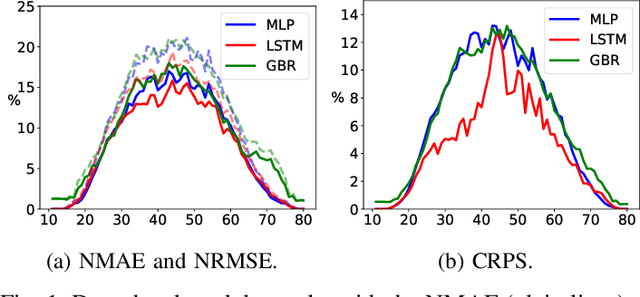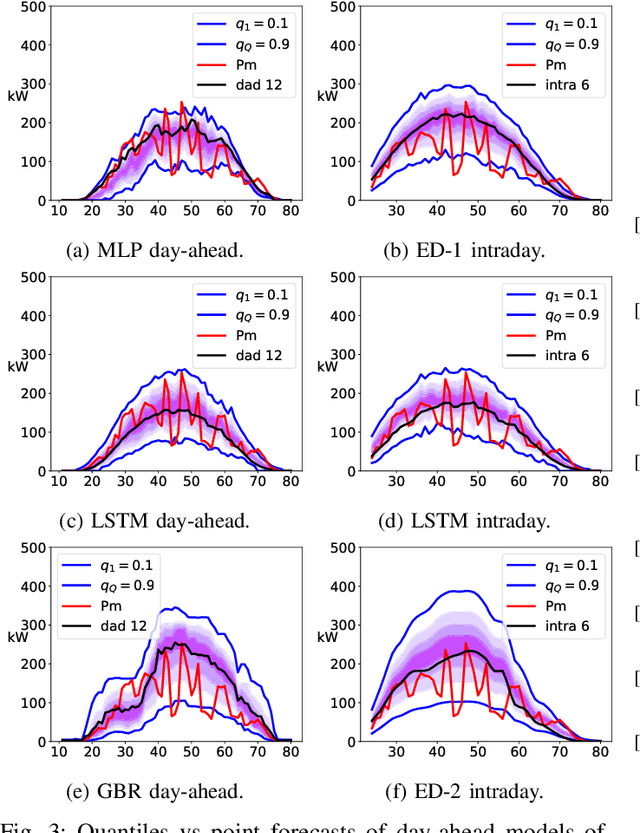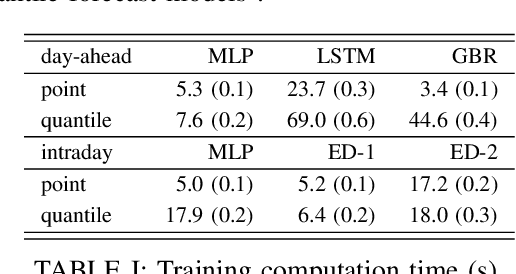Deep learning-based multi-output quantile forecasting of PV generation
Paper and Code
Jun 07, 2021



This paper develops probabilistic PV forecasters by taking advantage of recent breakthroughs in deep learning. It tailored forecasting tool, named encoder-decoder, is implemented to compute intraday multi-output PV quantiles forecasts to efficiently capture the time correlation. The models are trained using quantile regression, a non-parametric approach that assumes no prior knowledge of the probabilistic forecasting distribution. The case study is composed of PV production monitored on-site at the University of Li\`ege (ULi\`ege), Belgium. The weather forecasts from the regional climate model provided by the Laboratory of Climatology are used as inputs of the deep learning models. The forecast quality is quantitatively assessed by the continuous ranked probability and interval scores. The results indicate this architecture improves the forecast quality and is computationally efficient to be incorporated in an intraday decision-making tool for robust optimization.
 Add to Chrome
Add to Chrome Add to Firefox
Add to Firefox Add to Edge
Add to Edge